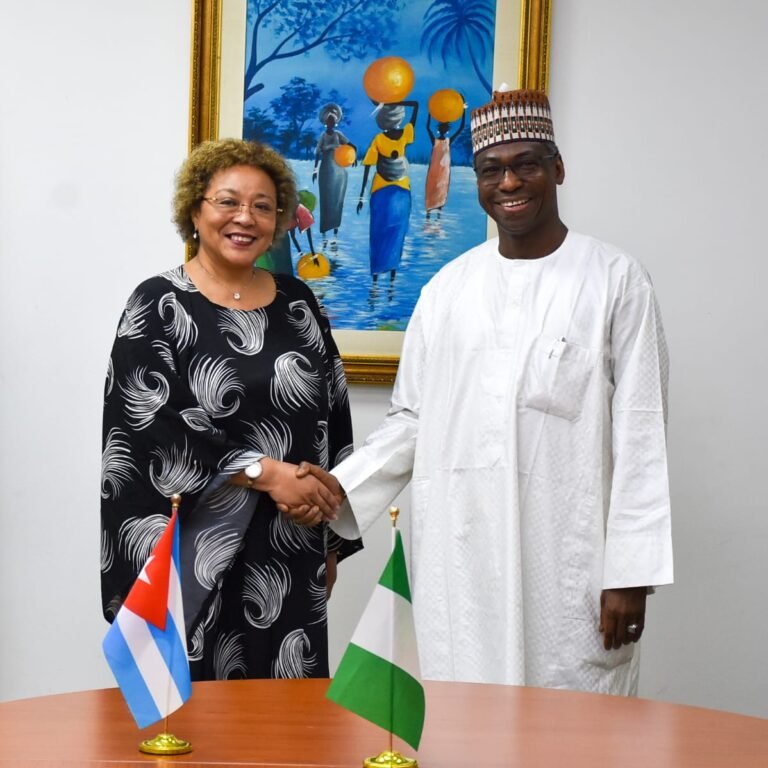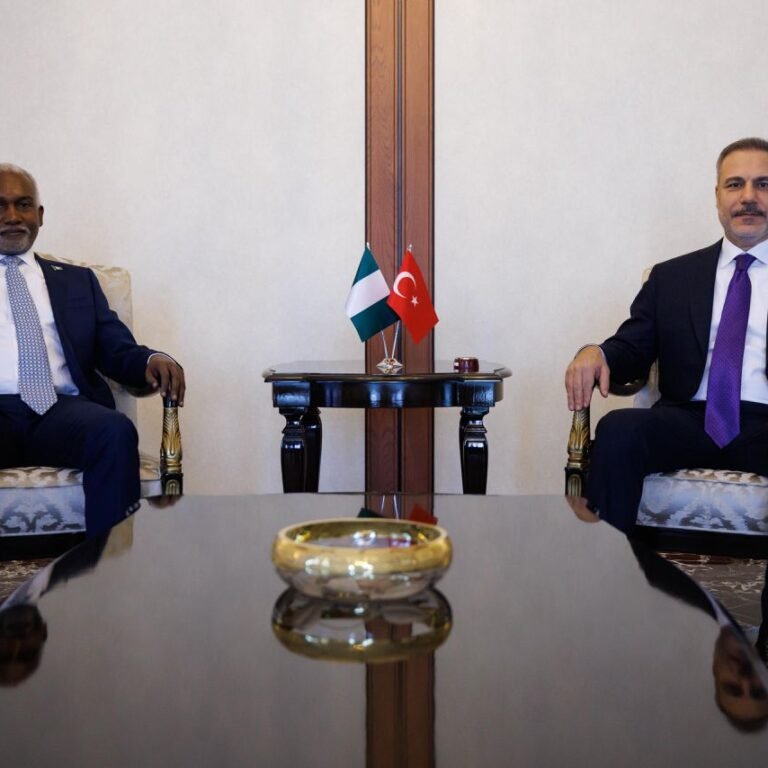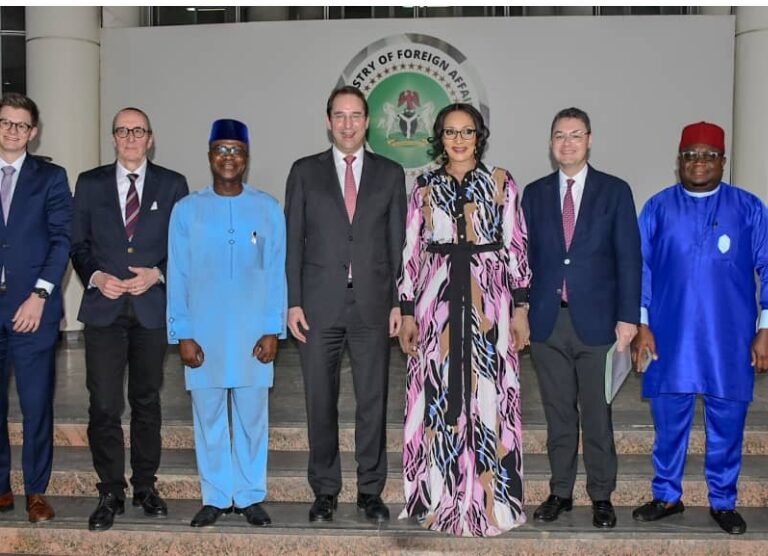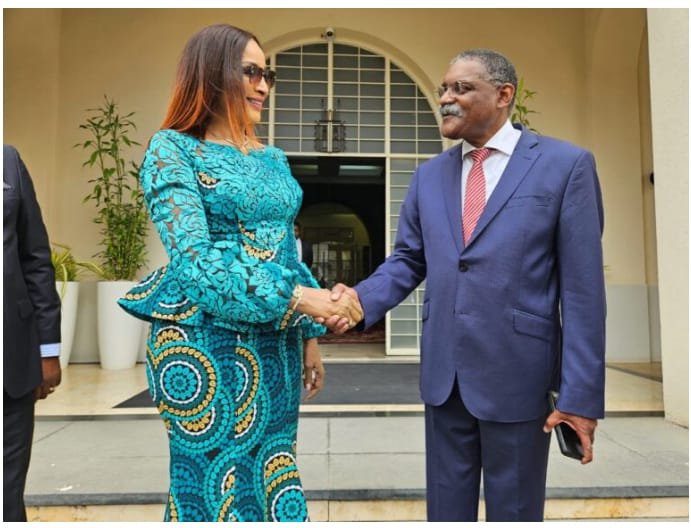
By Uriel Ihotu
After more than two decades of inactivity, Nigeria and Angola have revived their Bilateral Economic Joint Commission (BEJC), with both countries preparing to sign 15 new Memoranda of Understanding (MoUs) at the 5th session holding in Luanda, Angola.
The agreements, expected to be concluded by Friday, will span a wide range of sectors including defence and intelligence, migration partnership, transfer of sentenced persons, correctional reforms, education, youth development, anti-corruption, security, cultural exchanges, mining, land transportation, health, media collaboration, as well as the establishment of a Nigeria–Angola Business Council.
Nigeria’s Minister of State for Foreign Affairs, Ambassador Bianca Odumegwu-Ojukwu, hailed the development as a milestone in bilateral relations, describing the reactivation of the Joint Commission as an opportunity to reenergize long-dormant ties.
“This reactivation has provided an opportunity to resuscitate moribund bilateral agreements. I am delighted that the collective efforts of both sides have yielded the drafting and vetting of 19 MoUs, alongside two twinning agreements between Bayelsa and Namibe, and Nasarawa and Bengo Provinces,” Odumegwu-Ojukwu said.
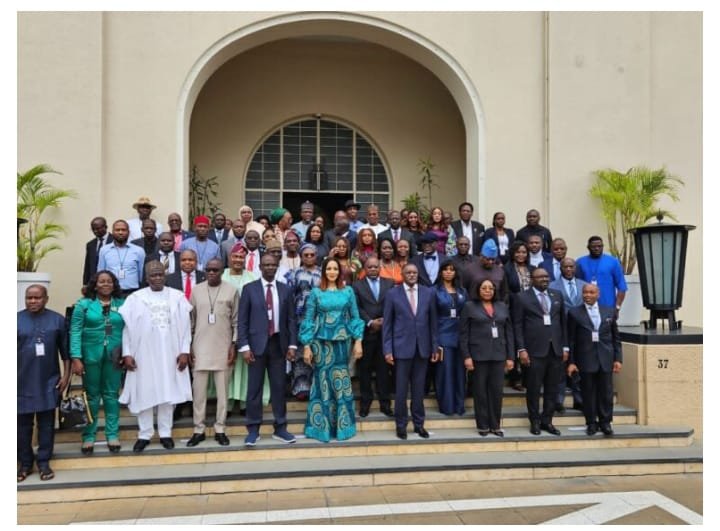
She added that discussions would extend to new areas of cooperation, including Nigerian airline operations in Angola, oil and gas partnerships, elimination of double taxation, and the possible entry of selected Nigerian banks into Angola.
On his part, Angola’s Secretary of State for International Cooperation, Domingos Vieira Lopes, emphasized the mutual benefits of the agreements, stressing that they would open fresh avenues for growth and development.
“The signing of new cooperation instruments will boost our bilateral relations. The mutual benefit will be enormous, helping development and growth in both countries to the benefit of our people,” Lopes affirmed.
The session, structured around four thematic areas diplomatic and migration; defense and security; trade and investment; and natural and human resources development is scheduled to close on Friday, marking a historic step toward stronger Nigeria Angola relations. Nigeria, Angola Set to Deepen Ties with 15 Strategic Agreements as Joint Commission Resumes After 24 Years
After more than two decades of inactivity, Nigeria and Angola have revived their Bilateral Economic Joint Commission (BEJC), with both countries preparing to sign 15 new Memoranda of Understanding (MoUs) at the 5th session holding in Luanda, Angola.
The agreements, expected to be concluded by Friday, will span a wide range of sectors including defence and intelligence, migration partnership, transfer of sentenced persons, correctional reforms, education, youth development, anti-corruption, security, cultural exchanges, mining, land transportation, health, media collaboration, as well as the establishment of a Nigeria–Angola Business Council.
Nigeria’s Minister of State for Foreign Affairs, Ambassador Bianca Odumegwu-Ojukwu, hailed the development as a milestone in bilateral relations, describing the reactivation of the Joint Commission as an opportunity to reenergize long-dormant ties.
“This reactivation has provided an opportunity to resuscitate moribund bilateral agreements. I am delighted that the collective efforts of both sides have yielded the drafting and vetting of 19 MoUs, alongside two twinning agreements between Bayelsa and Namibe, and Nasarawa and Bengo Provinces,” Odumegwu-Ojukwu said.
She added that discussions would extend to new areas of cooperation, including Nigerian airline operations in Angola, oil and gas partnerships, elimination of double taxation, and the possible entry of selected Nigerian banks into Angola.
On his part, Angola’s Secretary of State for International Cooperation, Domingos Vieira Lopes, emphasized the mutual benefits of the agreements, stressing that they would open fresh avenues for growth and development.
“The signing of new cooperation instruments will boost our bilateral relations. The mutual benefit will be enormous, helping development and growth in both countries to the benefit of our people,” Lopes affirmed.
The session, structured around four thematic areas diplomatic and migration; defense and security; trade and investment; and natural and human resources development is scheduled to close on Friday, marking a historic step toward stronger Nigeria–Angola relations.


